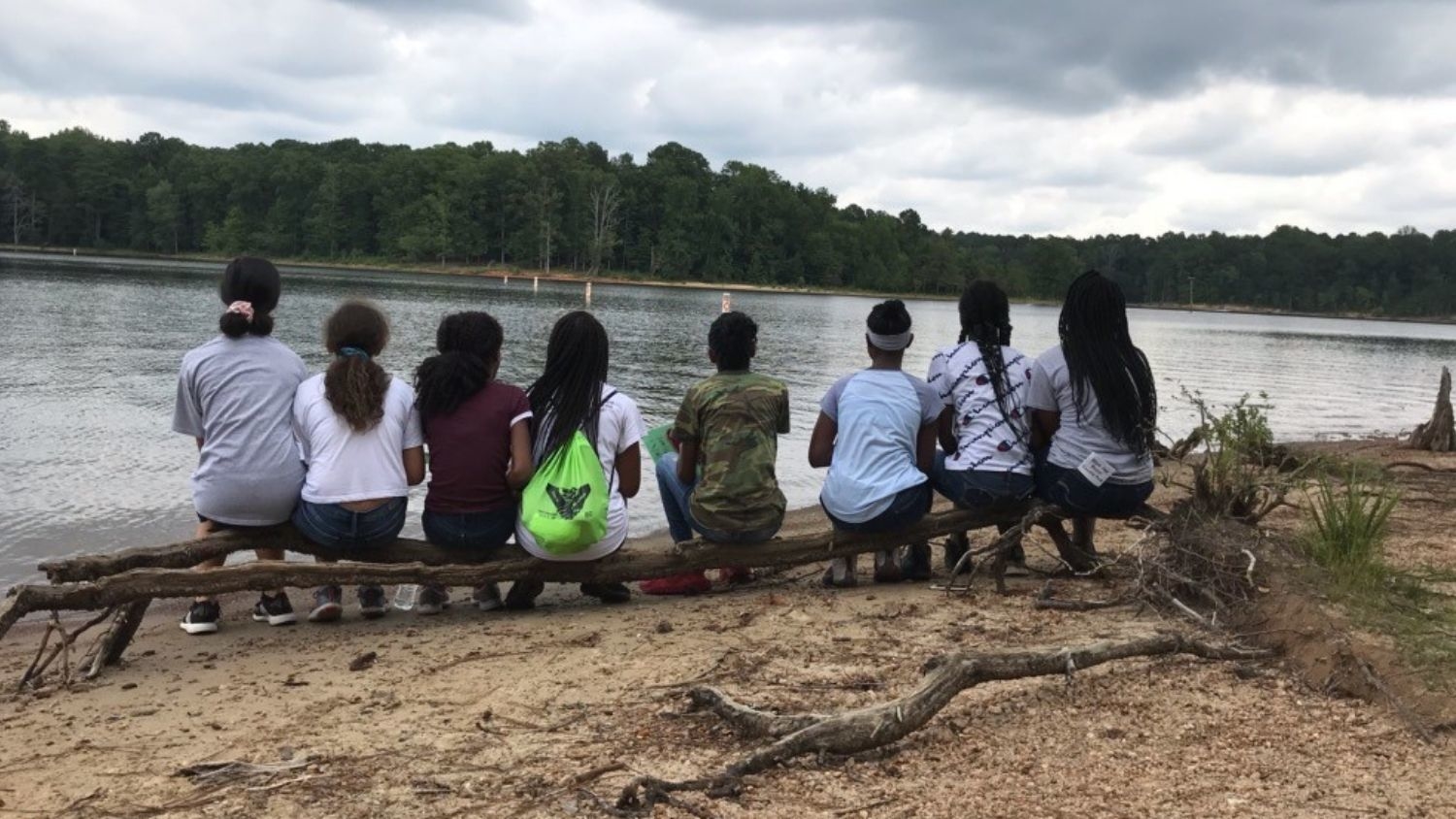Black Ecologists Look to Offer Support, Recruit Next Generation

In a field where a past study has found approximately one percent of ecologists in the United States identify as Black or African-American, a North Carolina State University professor is working with other professionals to offer support and encouragement to Black and African-American ecologists and help recruit underrepresented minority students.
In The Bulletin of the Ecological Society of America, researchers including NC State’s Zakiya Leggett described challenges facing Black professionals and students in ecology, and how the Ecological Society of America’s Black Ecologists Section is supporting people of diverse ethnicities and nationalities in the field.
“Being one of few African-American professors in ecology, just knowing that there are other people out there who may have faced similar struggles, who are facing similar challenges – and just having someone to talk to, or sound off to – has been really important,” said Leggett, a co-author of the paper and an assistant professor of forestry and environmental resources at NC State.
Earlier this year, the society named Leggett as an initial member of its Diversity, Equity, Inclusion and Justice Task Force. The group will review barriers to full participation by the society’s membership in an effort to support Black, Indigenous and other people of color.
The Abstract sat down with Leggett to talk about the work of the Black Ecologists Section as well as about the importance of diversity in ecology and in recruiting the next generation of professionals in the field.
The Abstract: What are some of the section’s goals?
Leggett: With the Black ecologists, one of the things we hope to do is help each other recruit diverse students. We also hope to help elevate each other when we are thinking about writing grants or looking for people when awards come around, and just really being passionate about making sure that our work is highlighted, and making sure we have opportunities to work together. Having a sense of community – all of us have found that to be very beneficial.
TA: The section has a number of big projects planned, including developing a workshop on climate change from the Black ecologists’ perspective. Can you talk about that?
Leggett: What we’ve seen is that underrepresented, low income, rural communities will likely be disproportionately affected by climate change. One of the things we talk about is highlighting some of these areas. They may have to fight harder to get support – whether it be state, local or federal support.
Everyone has talked about Miami, but what about some of these small towns in eastern North Carolina or other areas that are also going to be impacted?
TA: What’s the importance of diversity in the field?
Leggett: Representation is really important if we’re going to have a next generation of Black or minority ecologists. It’s important for students and young people to see people of color in these roles. You’ll find some students who are generally interested in environmental science and ecology, but have never seen or interacted with a Black ecologist. By highlighting Black ecologists, that representation shows students that they could actually do this too.
But the biggest piece is: Our communities are going to be impacted by climate change and environmental issues. We need Black ecologists, Black foresters, Blacks in natural resources and minorities overall, to be able to go and work in some of those communities.
Stereotypically, minority communities have not trusted scientists coming into their communities for so many different reasons. It’s very important for Black ecologists, not to just work in their communities, but to be able to go into those areas, and already have that trust factor. It makes a difference when there is that representation or that familiar face to say, “This is kosher.”
TA: What are challenges for recruiting students of color to the field of ecology?
Leggett: Students often do not know or think of ecology as an option. And if you were to ask them to draw a picture of an ecologist, they don’t think of an African-American male or female. I do a lot of elementary programs, and I find that a lot of not just minority students, but just students in general, are clueless about: what is an ecologist, what do they do, what kind of job can I get?
There are misconceptions, too. Some people also say, “I don’t want to be outdoors all day,” not realizing there are ecologists who do work almost 100 percent inside – whether it be lab work, quantitative work, or statistical ecology. So when we talk about recruitment, I think the piece that makes it challenging is people not necessarily knowing what the field needs, and what you can do in the field.
Another big key for me is also letting people know ecology is a field where you can survive; you won’t necessarily have to work for a low salary. I don’t think people know there are ecologists who work for large corporations. There are ecologists who work for the government. Being able to see the range of career options is key when we start thinking about recruitment.
- Categories: